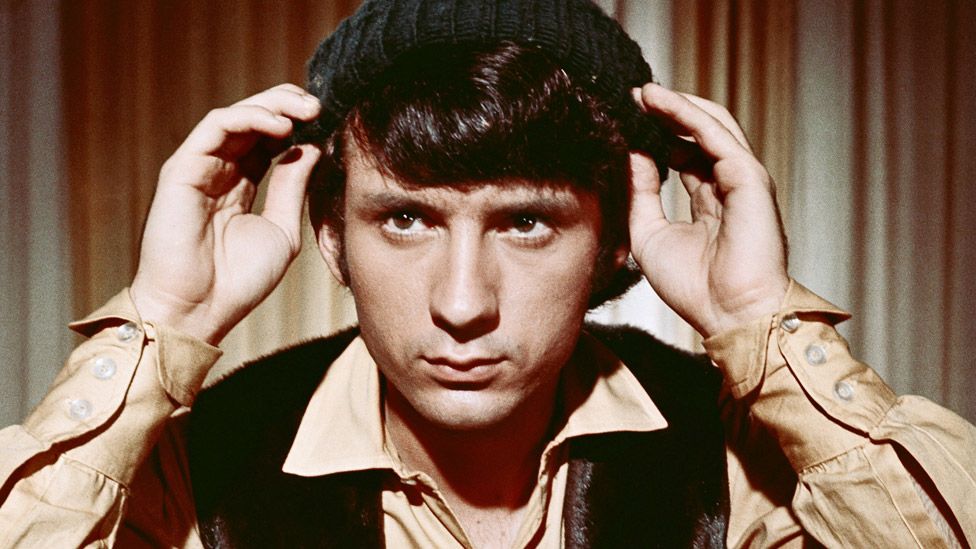Michael Nesmith: The Monkees star dies at 78
- Published

Michael Nesmith, singer, guitarist and songwriter with 1960s pop group The Monkees, has died at the age of 78.
The quartet enjoyed hits like Daydream Believer and I'm A Believer, and starred in their own popular TV sitcom.
Nesmith wrote numerous tunes including Listen To The Band, Sunny Girlfriend and Tapioca Tundra.
In a statement, his family said he "passed away this morning in his home, surrounded by family, peacefully and of natural causes".
Fellow Monkees band member Micky Dolenz said he was "heartbroken" at having "lost a dear friend and partner".
"I'm so grateful that we could spend the last couple of months together doing what we loved best - singing, laughing, and doing shtick," he tweeted.
Nesmith and Dolenz had been on tour last month and the group's manager Andrew Sandoval said: "We shared many travels and projects together over the course of 30 years, which culminated in a Monkees farewell tour that wrapped up only a few weeks ago.
"That tour was a true blessing for so many. And in the end I know that Michael was at peace with his legacy which included songwriting, producing, acting, direction and so many innovative ideas and concepts.
"I am positive the brilliance he captured will resonate and offer the love and light towards which he always moved."
Nesmith died from heart failure at his home in Carmel Valley, California, on Friday, a spokesman for record label Rhino told BBC News.
The Monkees were originally put together for the TV show and found fame with songs that were written for them.
But Nesmith, Dolenz, Peter Tork and Brit Davy Jones went on to take full control of their music.
"We were kids with our own taste in music and were happier performing songs we liked - and/or wrote - than songs that were handed to us," Nesmith told Rolling Stone in 2012.
The group broke up in 1969, after which Nesmith scored two US chart hits with his First National Band. He also wrote the song Different Drum, which became a major country hit for Linda Ronstadt.
After filming a music video for his single Rio in 1977, Nesmith came up with the idea of a TV programme consisting entirely of promo clips.
"Audio records are played on radio, so a video record should be played on video - on television," he wrote in his memoir. "There should be a broadcast component for the music video just like there is for records."
'One of the all-time greatest'
Nesmith called his idea PopClips, and later sold the intellectual property to Time Warner, who used it to develop and launch MTV.
Paying tribute, Midge Ure described him as "an underrated, talented musician, songwriter and video artist".
Allow Twitter content?
This article contains content provided by Twitter. We ask for your permission before anything is loaded, as they may be using cookies and other technologies. You may want to read Twitter’s cookie policy, external and privacy policy, external before accepting. To view this content choose ‘accept and continue’.
TV producer John Levenstein tweeted: "RIP Michael Nesmith. He was my first boss. I was young and insubordinate.
"He was bemused and patient. Later we became great friends. He had no fear of death."
Musician Steven Page added: "One of the all-time greatest. Rest in peace."
Nesmith was raised by a single mother, a secretary who enjoyed a sideline in painting. As electric typewriters became common, it became harder to correct mistakes, so she created a paint at home that matched the typing paper in her office. The invention later became liquid paper, known in the UK as Tipp-Ex.
Follow us on Facebook, or on Twitter @BBCNewsEnts. If you have a story suggestion email entertainment.news@bbc.co.uk.